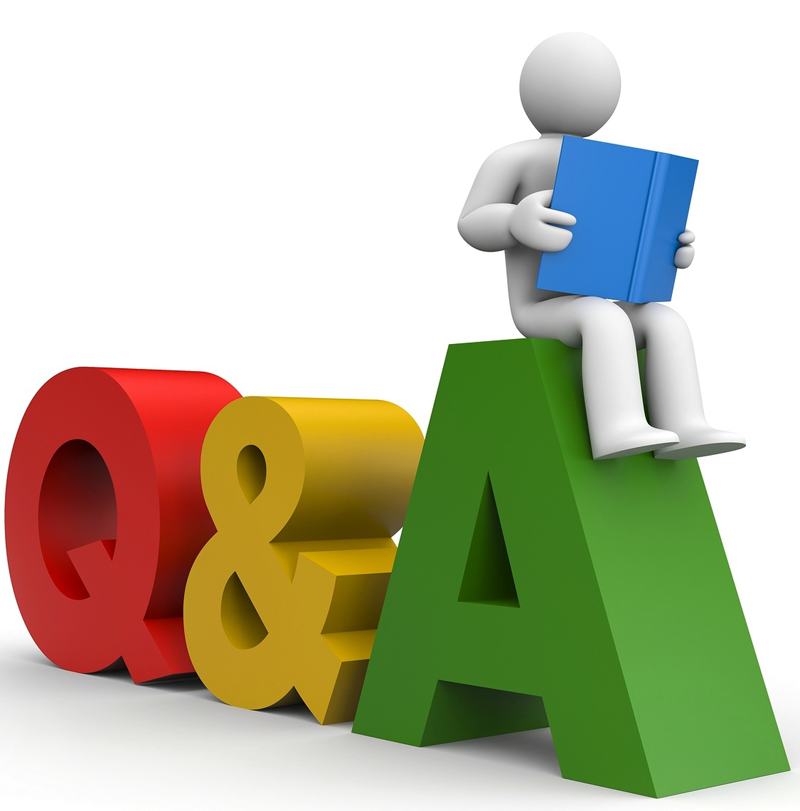Answer Questions Or Ask A Question: The Ultimate Guide To Effective Communication
In today's fast-paced world, the ability to answer questions or ask a question effectively is crucial for personal and professional success. Whether you are in a job interview, a classroom, or a casual conversation, the way you communicate can determine the outcome of your interaction. Understanding the nuances of questioning and answering can enhance your communication skills, leading to better relationships and opportunities.
Asking the right questions can unlock a wealth of information, while providing clear and thoughtful answers can position you as an authority in your field. This article delves into the art of questioning and answering, offering insights, techniques, and tips to master these essential skills.
We will explore various aspects of this topic, including the importance of asking the right questions, how to formulate effective answers, and the role of non-verbal communication in these interactions. By the end of this guide, you will have a comprehensive understanding of how to answer questions or ask a question in a way that resonates with your audience.
Table of Contents
- Importance of Asking Questions
- Types of Questions
- Techniques for Effective Questioning
- How to Answer Questions Effectively
- Non-Verbal Communication in Q&A
- Common Mistakes in Questioning and Answering
- Best Practices for Effective Communication
- Conclusion
Importance of Asking Questions
Asking questions is a fundamental part of human communication and serves several purposes:
- Clarification: Questions help clarify information and ensure understanding.
- Engagement: They engage others in conversation and encourage participation.
- Learning: Questions are essential for acquiring knowledge and fostering curiosity.
- Problem-Solving: In many scenarios, asking the right questions can lead to solutions.
In a professional setting, asking insightful questions can demonstrate your interest and expertise, while in personal interactions, it can help build rapport and understanding.
Types of Questions
There are various types of questions, each serving a different purpose:
Open-Ended Questions
Open-ended questions encourage detailed responses and discussion. For example:
- "What are your thoughts on the new policy?"
- "How did you approach that project?"
Closed-Ended Questions
Closed-ended questions typically elicit a simple "yes" or "no" answer. For example:
- "Did you complete the report?"
- "Are you attending the meeting?"
Follow-Up Questions
Follow-up questions are used to delve deeper into a topic. For example:
- "Can you elaborate on that point?"
- "What led you to that conclusion?"
Techniques for Effective Questioning
To ask questions effectively, consider the following techniques:
- Be Clear and Concise: Ensure your questions are straightforward and easy to understand.
- Use Active Listening: Pay attention to the responses and ask follow-up questions based on what you hear.
- Be Respectful: Approach the conversation with respect and an openness to different perspectives.
- Tailor Your Questions: Adapt your questions to suit the context and the person you are speaking with.
How to Answer Questions Effectively
Providing thoughtful answers is just as important as asking the right questions. Here are some tips:
- Listen Carefully: Make sure you fully understand the question before answering.
- Be Honest: If you don’t know the answer, it’s okay to admit it. You can offer to find out more information.
- Stay On Topic: Keep your answers relevant to the question asked.
- Provide Examples: Use examples to illustrate your points and make your answers more relatable.
Non-Verbal Communication in Q&A
Non-verbal cues play a significant role in communication. Consider the following aspects:
- Body Language: Maintain open body language to convey confidence and openness.
- Eye Contact: Establishing eye contact shows engagement and sincerity.
- Facial Expressions: Use appropriate facial expressions to enhance your message.
Common Mistakes in Questioning and Answering
Avoid these common pitfalls when engaging in Q&A:
- Interrupting: Allow the other person to finish speaking before responding.
- Leading Questions: Avoid questions that suggest a particular answer.
- Overly Complex Questions: Keep questions simple to encourage clear responses.
Best Practices for Effective Communication
To enhance your communication skills, consider the following best practices:
- Practice Active Listening: Engaging fully in conversations improves understanding.
- Be Curious: Cultivate curiosity to ask better questions.
- Reflect on Responses: Take time to think about the answers you receive.
- Seek Feedback: Ask for feedback on your communication style to improve further.
Conclusion
Mastering the art of asking questions and providing answers is essential for effective communication. By understanding the importance of questioning, employing various types of questions, and using effective answering techniques, you can enhance your interpersonal skills and foster better relationships.
We encourage you to practice these skills in your daily interactions. Share your thoughts in the comments below, and don’t hesitate to explore more articles on our site for additional insights!
Thank you for reading, and we look forward to seeing you again soon!
Matthew Moy: A Comprehensive Look Into The Life And Career Of The Talented Actor
Sophie Rain Spider: The Fascinating World Of One Of Nature's Most Intriguing Spiders
Sophie X Rain Age: Unraveling The Mystery Behind Their Journey


